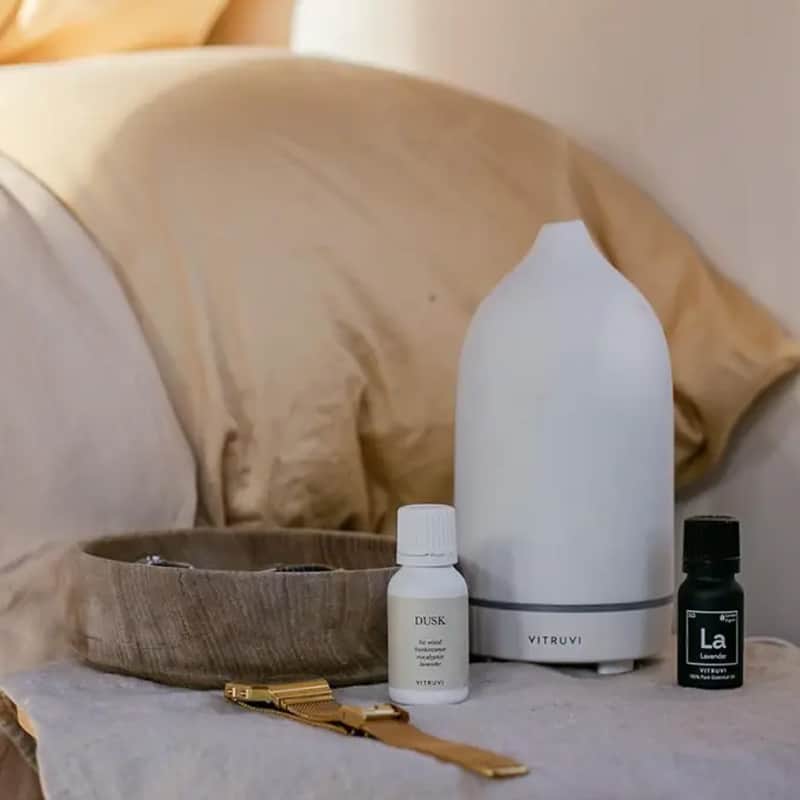Photo by Artem Kovalev on Unsplash

1.
Name your anxiety
To manage anxious thoughts and worries, we need to recognize its purpose-whether it’s a fear of the unknown, feeling out of control, or feeling restless. Once you identify the root cause of your anxiety and understand it as a natural defense mechanism, you automatically gain control over it.
Photo by madison lavern on Unsplash

2.
Practice mindfulness
When you feel like you can’t slow your thoughts down or fear is getting in the way of doing things you enjoy, being mindful is one of the best things you can do.
Here are a few mindfulness exercises you can start practicing today:
- Progressive muscle relaxation. Numerous studies have proven that progressive muscle relaxation helps lessen stress and anxiety. This exercise is best practiced in a comfortable position and a quiet space free of distractions. Check out this 5 minute PMR exercise here to get started.
- Body scan. A body scan meditation asks you to bring your attention to your body. As you mentally scan down from your head to your feet, you’ll start to notice and observe different sensations- such as tension, pain, or general discomfort. Breathing into these sensations can relieve the mind from ruminating, worrisome thoughts.

3.
Improve your sleep hygiene
Getting quality sleep is one of the best things you can do for your physical and mental health. When you don’t, it can lead to a weakened immune system, increased cortisol levels (stress hormone), and a greater need to depend on stimulants to get through the day.
The good news about sleep and anxiety is associated with one another is that once you learn to manage one issue, you’re also helping the other one. To help you fall asleep quicker and stay asleep longer, consider the following strategies:
- Develop a wind-down routine. Avoid anything that may be too overstimulating, like scrolling through social media or watching a horror film before bed. Instead, do things that make you feel calm, relaxed, and at peace.
- Go to bed and wake up at the same time every day. The body and mind desire consistency. Falling asleep and waking up at the same time every morning follows your body’s circadian rhythm-or your internal clock.
- Use your bedroom only for sleep. If you work or watch TV in bed, the mind starts associating each of these activities with being wide-awake and alert. If you can’t sleep within 20-30 minutes, get out of bed and do a dull task. Don’t go back to bed until you feel tired again. Over time, you’ll naturally feel more tired when you lay down, and it’ll make it easier to fall asleep.
Photo by Dmitriy Frantsev on Unsplash

4.
Exercise daily
Sometimes a quick walk around the block or a short yoga routine is all you need-15-20 minutes of movement can go a long way. Exercise decreases stress hormones and increases your body’s ‘feel-good’ chemicals—which naturally boost your mood. It’s a powerful way to relieve built-up physical and mental tension while reducing feelings of fear and worry.
Photo by Kelly Sikkema on Unsplash

5.
Journal
Many of us view journaling as a daunting assignment. But the truth is, writing out everything and anything on your mind can be a great way to get those thoughts out of your mind. Nobody has to see it, and grammar doesn’t need to exist. If it doesn’t have a way to get out, our worries, fears, and stressors get repressed and show up in other ways.
While some of these strategies are easier said than done, remember to start with one at a time and be patient with yourself. Find a friend to support you along the way or track your progress using a journal. Over time, you’ll feel more in control of any anxious thoughts that arise and ultimately live a happier, healthier life.
Keywords: reduce anxiety, strategies to reduce anxiety
Resources
https://goop.com/wellness/
https://www.mayoclinic.org/
https://pubmed.ncbi.nlm.nih.
https://www.health.harvard.
https://www.health.harvard.
https://www.urmc.rochester.

















